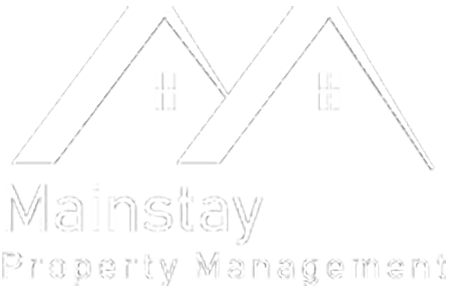Entering the world of being a landlord can seem intimidating and exciting all at the same time. To be successful in your new real estate investment, there are some things new property owners need to know.

Whether you’ve made the impulse decision to purchase a rental property in Maryland or have been on the hunt for months, being a new property owner comes with its own challenges.
Fortunately, you’ve come across this blog post, packed with essential and practical tips for new property owners to start their investment on the right foot.
Plus, our last tip will definitely be a lifesaver if you are a new rental property owner in Maryland.
The Basics: Everything New Rental Property Owners Need to Know
While it may seem like owning a rental property is a sure way to achieve passive income and build wealth, there is more to consider than just acquiring the property.
Below are some basic, yet essential, tips to becoming a successful landlord.
1. Make a Business Plan
Investing in a rental property is more than just a financial investment. You have committed to running a business and keeping track of operations and expenses.
Before you acquire new tenants, make a business plan.
Write down your expected revenue, estimated expenses, and how you will handle issues that may arise, such as costly maintenance issues. What will you do to ensure your investment is profitable?
2. Keep Track of Everything
Now that we’ve established owning a rental property is like running a business, your next task is to keep track of everything.
This means keeping track of expenses, receipts, written communication, inspections, maintenance quotes, taxes, and more.
Find a reliable bookkeeping software or spreadsheet to keep track of financial statements for your rental property. This will come in handy when you file your annual taxes!
3. Write a Comprehensive Lease
A lease agreement is one of the most important documents when renting to tenants. This sets the law of the land, what your tenants can and cannot do, and what will happen if they breach the lease.
While there are lease templates online, it’s always a good idea to work with a real estate lawyer or professional to write a lease that is legally sound and states exactly what you want.
You can use this lease repeatedly. Simply change the tenant information, dates, and rent price if necessary.
4. Determine the Right Rent Price
Setting a rental price that meets the market’s demands and your property’s value can be tricky.
One way to do this is by comparing your rental property to similar properties in the area. How much are they renting for? Have they been on the market too long?
When you set your price too low, you’ll get many tenant requests. When you set your price too high, you will hardly get any requests. It’s important to find the sweet spot.
5. Establish a Tenant Screening Process
Screening prospective tenants is crucial to avoid problematic tenants and potential evictions.
Establish a tenant screening process that includes a rental application, background check, credit check, and calling tenant references.
This information will help you determine whether the tenant is a good fit.
6. Learn Local Laws and Regulations
To keep your rental property compliant with the law, it’s important to learn and study the local laws and regulations. You should be aware of local, state, and federal laws when it comes to owning a rental property.
For example, Maryland has its own set of laws concerning security deposits and how to handle them.
You should also familiarize yourself with the federal Fair Housing Act as well.
7. Create an Attractive Property Listing
When acquiring new tenants, it’s always a good idea to have a crisp, clean property listing online.
Before tenants move in, take high-quality photos of the listing while it’s still new and in good condition. Write an enticing description that helps potential tenants imagine themselves living in the property for the best results.
8. Collect Rent Payments Electronically
Long gone are the days of depositing rent checks. Set up electronic payment methods, such as Venmo or PayPal, to easily collect rent each month.
You’ll receive rent instantly while avoiding the possibility of bounced checks.
9. Prioritize Tenant Retention
One of the best-kept secrets that new rental property owners need to know is to prioritize tenant retention.
When you have a good tenant, make an effort to keep them for a lease renewal. It isn’t easy to find a great tenant and even more expensive to acquire a new one.
10. Schedule Routine Inspections

Hosting a property inspection every quarter is an effective way to ensure tenants are abiding by the lease and to identify potential maintenance issues, saving you hundreds of dollars in the long run.
Always give your tenants at least 24 hours notice before entering the property for your inspection.
11. Build a Maintenance Network
If you rely on contractors and handypeople to make repairs to your rental property, it’s a good idea to build a network and trustworthy relationships. These connections will come in handy during emergency maintenance requests.
Sometimes, you may be able to get a discount if you own multiple rental properties and use the same service for all of them.
12. Get Landlord Insurance
Landlord insurance, while an additional monthly cost, can be extremely helpful in times of vacancy or if someone is injured on your property.
It’s always better to be safe than sorry!
13. Plan for Property Improvements
Over the years, your property may lose value if you do not keep up with improvements or trends.
Plan for property improvements to justify raising the rent price over the years and increase the property value if you decide to sell it.
14. Be Prepared for Pets
With the majority of the rental market being millennials and 33% of millennials owning pets, landlords should prepare to have pets in their properties.
Many landlords don’t accept pets, but this closes a considerable section of the rental market. Instead, enforce a pet deposit – this could also be a monthly fee – and install hardwood or luxury vinyl floors throughout the property to avoid damage or odors.
15. Hire a Property Manager
Many rental property owners in Maryland hire a property manager to take care of the day-to-day tasks involved in managing a property.
A property manager takes the stress of maintaining a property, coordinating repairs, communicating with tenants, and bookkeeping off your shoulders.
You get to sit back, relax, and enjoy monthly rent checks deposited into your account.
Maximize Your Rental Income with Mainstay Property Management
As a new rental property owner in Maryland, you may feel a bit overwhelmed with all of this new responsibility.
If you’re looking to create passive income with your investment doing the least work possible, Mainstay Property Management is the solution you’ve been searching for!
Our team of real estate professionals is here to maximize your ROI, keep tenants happy, and maintain property value, all while offering an up to 30% discount on repairs.
Are you ready to experience the Mainstay Way?

